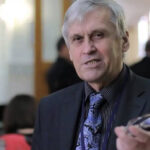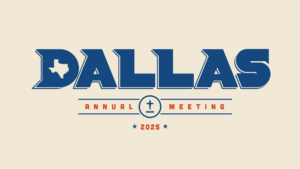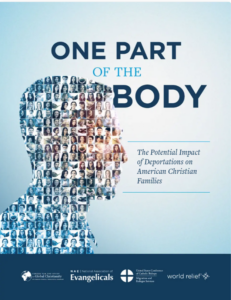
WASHINGTON (BP)–A refugee from North Korea called on the U.S. Commission on International Religious Freedom at a Jan. 24 hearing to help Christians in the communist state to achieve one desire.
Her voice breaking with emotion, Soon-Ok Lee said of the followers of Christ in North Korea, “Their hope and wish is to proclaim God openly while on earth. I hope you as a commission will help them with their goal. Lots of Christians in North Korea keep their faith in their heart.”
Lee’s testimony was the most riveting during a morning hearing on the condition of religious freedom in North Korea and how it can be promoted in the totalitarian country that is largely closed to the outside world.
Last year, the U.S. State Department named North Korea to its annual list of the world’s most flagrant violators of religious liberty for the first time. In its report, the State Department said, “Genuine religious freedom does not exist,” an assessment affirmed by witnesses at the USCIRF hearing.
Christians are called “political criminals” in North Korea and are persecuted solely for their faith, Lee said through an interpreter. Hundreds of the 6,000 inmates in the prison camp in which she was held were there because they were Christians, she said. Believers in Christ would be separated from nonbelievers in prison to prevent their influence on others, she testified.
Guards would tell the Christians they could save their lives and be freed if they would refuse to worship God and instead worship Kim Il Sung, the deceased founder of the Marxist regime, she said.
“I could not understand their faith at the time, because I did not know God,” Lee told the panel.
“I didn’t know God when I lived in North Korea because I was brainwashed to worship [Il Sung],” she said. “I was trained to have bad feelings” about Christianity.
In North Korea, “children are taught Christianity is like opium” and Christians are “puppets of invaders,” Lee testified.
There is “some underground activity” among Christians, she said. Others testified it is difficult to know how many are involved in the underground church. There does not appear to be any way of “verifying statistics,” said Stephen Linton, chairman of a humanitarian organization that works in North Korea.
North Korea has suppressed Christianity and other religions since the end of the Korean War in 1953. Catholics and Protestants are the most severely persecuted, while Buddhists and adherents of native religions are repressed to a lesser extent, Linton said.
Other human rights violations have been a part of North Korean society, and desperate poverty has become commonplace in recent years. It is reported at least 1 million North Koreans have died of starvation and disease in the last decade as a result of the regime’s failed economy and natural disasters, USCIRF chairman Michael Young said at the hearing. Children, often of Christian parents, are starving and dying, said German medical worker Norbert Vollertsen, who was expelled from the country just over a year ago.
North Korea consists of two worlds, that of the elites, such as the ruling party’s members and military leaders, who enjoy an extravagant lifestyle and that of the remainder of the people, Vollertsen testified.
Afterward, USCIRF member Richard Land said his heart “grieves for our fellow Christian brothers and sisters and people of other faiths who are suffering so terribly under this despotic regime. If there is an Outlaw Regime Hall of Fame in the world, surely the North Korean and Sudan regimes have the dishonor of heading the list of members.
“I was particularly struck by one non-Korean’s testimony that it’s just unique in the world that you have a government that is willing to starve its own people and its children to perpetuate itself,” said Land, president of the Southern Baptist Ethics & Religious Liberty Commission. “The story of the horrific suffering under the North Korean government needs to be told, and the civilized governments of the world need to do everything they can to alleviate it. At present, except for the elites who serve as the jailers, North Korea can legitimately be described as one huge concentration camp.”
Witnesses did not provide a united front on policy recommendations for the United States to implement in fostering religious freedom and other human rights in North Korea. Several endorsed engagement, but not all supported threats against or punishment of the regime.
Linton was the panelist who most resisted pressure tactics. They have not worked, Linton said. Because there are no American corporations in North Korea, he said, about the only pressure the United States could bring is withholding humanitarian aid or conducting a military invasion, steps he did not recommend.
Pressure has worked, said Chuck Downs, a former East Asian affairs official in the Department of Defense. “The regime certainly responds to pressure” and has during the last 50 years, he said. The United States needs to maintain pressure on the government, Downs said.
One way of bringing pressure on the regime is to help North Koreans who have fled to other countries, Downs said, a cause espoused by other witnesses as well. If comfort is provided to refugees, “word will get back” and “people will want to leave,” he said.
Diplomatic recognition of North Korea, promotion of the rights of Korean-Americans separated from family members in the communist country and strengthening the “firewall” between religion and the state were among Linton’s recommendations. The United States especially should restrict intelligence-gathering organizations from using religious workers, Linton said. It also should bar its representatives from participating in ceremonies connected with worship of Il Sung, something that happened under the Clinton administration, he said.
Some of the torture of prisoners in her North Korean camp involved forced abortion, said Lee, who testified she was tortured for 14 months at the start of her seven-year imprisonment.
Under the laws, pregnant women were not allowed to give birth in prison, even if they were in the eighth or ninth month, she said. The philosophy was “people with bad ideology in them” should not be allowed to give birth, Lee testified.
On many occasions, dead babies were taken to a laboratory after abortions, and the mothers would cry, she said. To stop the crying, guards would sometimes kick the women and sometimes shoot them to death, Lee said.
One child in the ninth month was born alive, she testified. The jailer stepped on the baby’s neck to kill it, Lee said.
The USCIRF is expected to make recommendations concerning U.S. policy toward North Korea after further study.
When the State Department named North Korea as one of the “countries of particular concern” in October, its report said, “The regime appears to have cracked down on unauthorized religious groups in recent years, and there have been unconfirmed reports of the killing of members of underground Christian churches. In addition religious persons who proselytize or who have ties to overseas evangelical groups operating across the border with China appear to have been arrested and subjected to harsh penalties, according to several unconfirmed reports.”
After a country has been designated as a CPC, the law provides the president with a range of potential responses to choose from in establishing a policy for that government. Those options range from diplomatic protest to economic sanction. The president also may waive any punishment for national security reasons.
The other six regimes on the latest CPC list were Burma, China, Iran, Iraq, Sudan and the Taliban of Afghanistan. The Taliban has since been displaced as the ruling government of Afghanistan.
The militant Islamic regime ruling over Sudan has waged what has been widely described as a genocidal campaign against Christians, animists and moderate Muslims in the southern and central regions of the African country. The Khartoum-supported effort has included slave raids and the bombardment of hospitals, churches, schools and relief stations.
The USCIRF consists of nine members who are appointed for two-year terms by the president and leaders in Congress. Bush named Land to the panel in September.
–30–

















